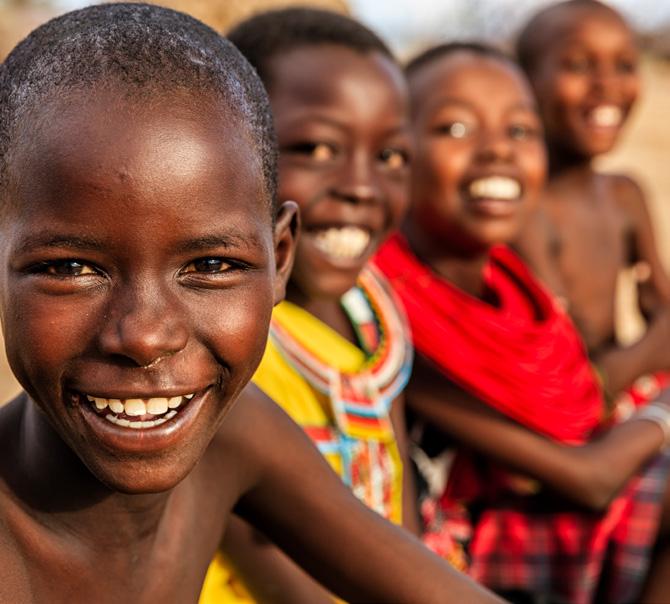
6 minute read
News Bites
GLOBAL PLAN TO ELIMINATE CERVICAL CANCER
The World Health Organization (WHO) has endorsed a strategy for the global elimination of cervical cancer and has supported the implementation of a national cervical cancer plan.
The strategy, Accelerating the Elimination of Cervical Cancer as a Public Health
Problem, is designed to advance women’s health, strengthen global health systems and address inequities between and within countries to help eliminate cervical cancer.
The elimination resolution was led by the Australian government and underpinned by key Australian innovations that have positioned
Australia to become the first country in the world to eliminate cervical cancer.
These include the initial development of the HPV vaccine by Professor Ian
Frazer, Dr Jian Zhao and collaborators at the University of Queensland, in addition to Australia’s world-first implementation of HPV vaccinations and complementary HPV-based cervical screening. Canberra has recently opened its fifth nurse-led walk-in centre. Located in Canberra’s inner north, the clinic is run by nurses and nurse practitioners who provide treatment for minor injuries and illnesses. ACT’s other nurse-led walk in centres are situated in Tuggeranong, Weston Creek, West Belconnen, and Gungahlin. “Globally, there are over 300,000 deaths from cervical cancer each year, and over 90% of these deaths worldwide occur in low and middle-income countries,” Adjunct Professor Karen Canfell, Chair of Cancer Council’s Screening and Immunisation Committee explained. “In work Cancer Council has done to support WHO’s planning, our team and our collaborators have found that as many as 74 million cases could be averted and 62 million lives could be saved if 78 of the poorest countries in the world are able to rapidly scale up HPV vaccination, cervical screening and access to cancer treatment services. “The target is ambitious but achievable. We have the technology to eliminate cervical cancer, and the peer-reviewed evidence to show it is feasible. We now need the political will in all countries to
ACT’s fifth nurse-led walk-in centre open for business
make it a reality,” she said. The centres, which have been running since 2014, have been highly successful, significantly reducing the number of presentations at Emergency Departments. To date, the centres have treated more than 282,000 patients and presentations continue to grow year on year with more than 67,000 in 2019. To learn more about Canberra’s nurse-led walk in centres, read ANMJ’s feature on how nurse-led models of care are reshaping healthcare on page 10.

AFRICA DECLARED WILD POLIO FREE Africa has been proclaimed wild polio free after four years without a case.
The Africa Region is part of the six World Health Organization (WHO) regions, five of which represent over 90% of the world’s population and are now polio free.
Only two countries worldwide continue to see wild poliovirus transmission- Pakistan and Afghanistan.
As the world moves closer to achieving global polio eradication, the Global Polio Eradication Initiative congratulated the national governments of the 47 countries in the WHO African Region for today’s achievement.
“Ending wild poliovirus in Africa is one of the greatest public health achievements of our time and provides powerful inspiration for all of us to finish the job of eradicating polio globally,” said WHO Director-General Dr Tedros Adhanom Ghebreyesus. “I thank and congratulate the governments, health workers, community volunteers, traditional and religious leaders and parents across the region who have worked together to kick wild polio out of Africa.”
Sterile water injections provide effective pain relief for women with labour back pain, according to University of Queensland-led research.
Dr Nigel Lee from the UQ School of Nursing, Midwifery and Social Work said the injections were previously seen as controversial but this study shows they are safe and effective. “Some midwives have used this practice in order to provide pain relief for a number of years, however until now, there has always been limited research to suggest that it works,” Dr Lee said. “In fact, many hospitals refused to support the procedure, viewing it as ‘midwifery voodoo’. “This research provides definitive evidence that water injections offer effective pain relief for the majority of women with labour back pain.” Dr Lee said twice as many of the women who received the water injections in the study reported their pain reduced by at least half, for 90 minutes or longer. “Unlike normal labour pain, back labour pain is unpredictable and often continues between contractions with no break. “Most drugs provided for labour pain are ineffective for back pain which may persist even after an epidural has been given. “Water injections have been shown to be simple, effective and safe, and to have no effect on birth outcomes.” Professor Sue Kildea from Charles Darwin University said the simplicity and safety of the procedure made it of enormous value to women around the world. “Water injections will not only be of benefit to women wanting to avoid pain relieving drugs during labour, but also where women have little or no access to pain relief during childbirth, such as home birth and countries with developing health systems,” Professor Kildea said.
CATSINaM appoints new CEO
REPORT SHEDS LIGHT ON SEXUAL ASSAULT IN AUSTRALIA Women in their late teens are more likely assault, with young men of the same age group the most likely to be perpetrators, according to a new report from the Australian Institute of Health and Welfare (AIHW).
The report, Sexual assault in Australia, shows that in 2018, police recorded about 18,300 sexual assaults against victims who were aged 15 and over when the assaults were reported. The rate of sexual assaults reported to police was seven times higher for females, with more than 154.4 assaults per 100,000 females, compared to about 23.5 per 100,000 males. The sexual assault rate was higher for Australians aged 15-19 than any other age group. The report brings together data from a variety of sources and includes new analysis. According to estimates from the Personal Safety Survey, the proportion of women aged 18 and over who were sexually assaulted at least one in the 12 months prior to the survey increased from 1% in 2012 to 1.6% in 2016. In 2016, it was estimated that perpetrators of sexual assault were four times more likely to be someone known to the victim than a stranger. In 2018, the majority (97%) of sexual assault offenders recorded by police data were male, with young males aged 15-19 the highest offenders of any age group. Sexual assault can have a range of consequences for victims, AIHW spokesperson Louise York said.
than other Australians to be victims of sexual
The Congress of Aboriginal and Torres Strait Islander Nurses and Midwives (CATSINaM) has appointed Professor Roianne West as its new Chief Executive Officer.

A renowned leader in health, academia and research, Professor West brings a wealth of experience to the position and ensures the organisation is primed to realise its vision of Aboriginal and Torres Strait Islander nurses and midwives playing a pivotal role in achieving health equity across Australia’s health system for Aboriginal and Torres Strait Islander Peoples. Professor West’s drive to improve Aboriginal and Torres Strait Islander health echoes a family tradition and includes careers in nursing spanning four generations. She has completed a Bachelor of Nursing, a Masters of Mental Health Nursing and a PhD which developed a model of excellence for increasing the number of Indigenous nurses. Beginning her journey as an Aboriginal health worker in an Aboriginal Community Controlled Health Service, she holds decades of broad experience in leadership positions across hospitals, policy, VET, and academia. Australia’s first Nursing Director in a tertiary hospital with a dedicated portfolio of Indigenous Health, Professor West was also the country’s first Professor of Indigenous Health, Foundation Chair in First Peoples Health, Director of the First Peoples Health Unit and the inaugural Dean of First Peoples Health at Griffith University. “We face exciting times ahead in the midst of our challenges as Aboriginal and Torres Strait Islander Peoples,” Aunty Dr Doseena Fergie OAM, CATSINaM Inaugural Elders Council Member said. “We are confident that Roianne’s unique style and the networks she has fostered will open new doors of opportunity for our organisation to walk through.”










